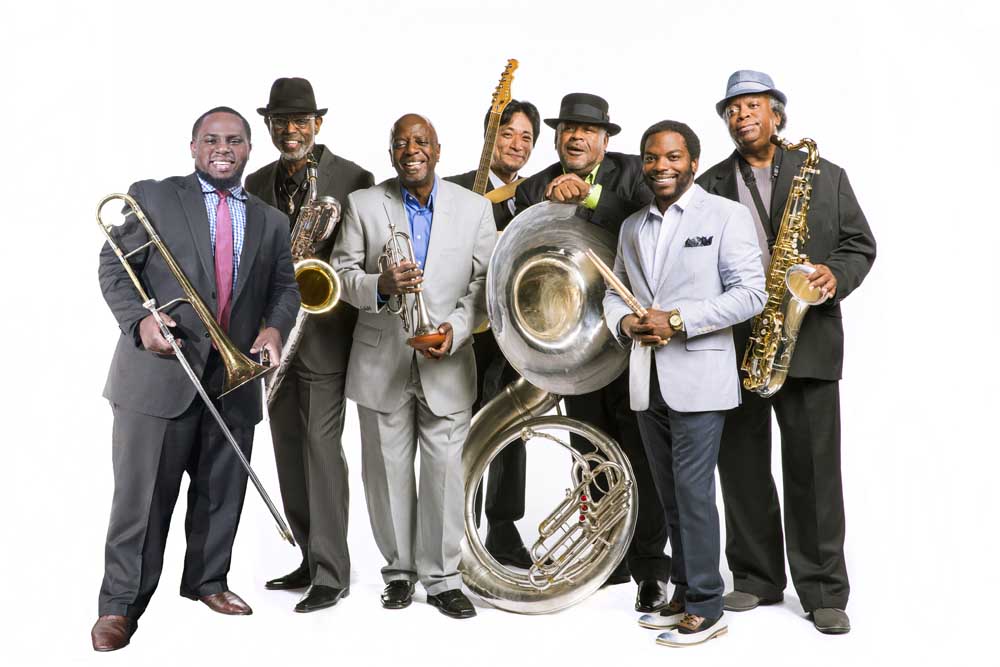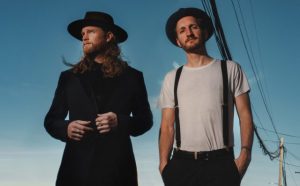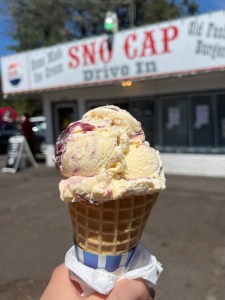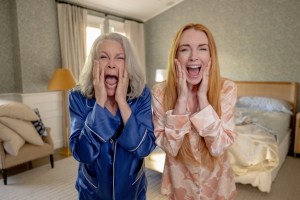Dirty Dozen Brass Band will give Bend a workout
Published 12:00 am Thursday, October 4, 2018

- New Orleans' Dirty Dozen Brass Band, known for revitalizing the brass-band tradition with jazz, soul, rock, R&B and more, will headline the first day of the Bend Fall Festival on Friday. (Submitted photo)
Roger Lewis knows New Orleans music — and New Orleans cuisine. Both came up early in a 40-minute-plus conversation with the Dirty Dozen Brass Band’s baritone saxophonist and co-founder.
“We’ve got a dish called gumbo, and in this dish called gumbo, you put all kinds of different, good ingredients in it,” Lewis said from his home in the city. “It tastes so good. It’s just like the music — the music is like a good pot of gumbo. You familiar with the dish?”
Trending
Yes, this reporter has tried gumbo before.
“Well then, you already know!” Lewis said, laughing. “The music is like a big pot of gumbo. It tastes good, and it feels good. It’s good for your body and your mind and your soul.”
You’ve probably heard this analogy before applied to New Orleans music in general. It’s fitting — as Lewis described, gumbo is a stew that combines various meats, seafood and vegetables into one dish, in much the same way the city’s music grew out of African, French and Cuban cultures and encompasses jazz, funk, R&B and rock ’n’ roll (among many other genres).
But it’s even more appropriate for the Dirty Dozen Brass Band, which will headline the Bend Fall Festival on Friday. Coming out of the brass band tradition, a key component of second-line street parades and funerals in New Orleans, the band added its own flair by adapting jazz standards and pop songs originally by the likes of Michael Jackson and Marvin Gaye.
These shifts helped bring the brass-band tradition to a national audience and inspired countless others such as Rebirth Brass Band to follow suit. But for Lewis, the most important part of the Dirty Dozen sound is that New Orleans spirit that “gets inside of you” and makes you move. When pressed, he couldn’t think of an audience anywhere in the world that hasn’t had the same reaction to the music.
“I remember we was doing a concert in Indonesia — it might have been Jakarta — and one of the directors was telling me, she said, ‘Well look, I don’t want you guys to think that people are not enjoying your music, because these people are very conservative,” Lewis said. “‘They just sit down, they dig and they absorb like that; they don’t react maybe to the way you guys are accustomed to people reacting.’I said to myself, ‘Yeah right, mmm-hmm.’ And after the first number … people were jumping around, jumping up and down. … When the spirit hits you, man, you gotta react, you gotta move.”
Trending
Lewis is the longest-tenured member of the seven-piece band, which formed in 1977 and includes three other original members today: tenor saxophonist Kevin Harris, trumpeter Gregory Davis and sousaphonist Kirk Joseph. The name Dirty Dozen refers to the band’s original home base, the Dirty Dozen Social and Pleasure Club, one of a number of such clubs that would provide health and funeral arrangements to poor black Southerners, per the Dirty Dozen’s website.
Though he played second-line parades before Dirty Dozen, stretching back to the 1960s, Lewis got his start playing jazz standards and rock ’n’ roll in various New Orleans clubs and on the Chitlin’ Circuit in the segregated South. Before and during his Dirty Dozen tenure, Lewis toured with fellow New Orleans musician Fats Domino.
“I brought a little something fresh to the band because I would never stop playing,” Lewis said. “I would be playing along with the bass player, sometimes doubling with the bass player, and sometimes playing off the bass player, phrasing the way Fats sang. It’s important to keep playing behind the singer. You don’t try to overplay them, you play under them but to enhance what they’re doing. That’s your job, to bring the best and hell, even maybe make them do some things that they’ve probably never done before.”
That constant playing locked with the sousaphone and tuba when Dirty Dozen started.
“Here we come with a baritone saxophone that’s playing like a trumpet player that’s also playing things with the tuba, too,” Lewis said. “It’s like … a baritone and a bass instrument collaborating on a bass line. He’s playing one thing and the baritone’s complimenting what he’s playing, and then you’ve got two things going on. That’s totally different, nobody do that.”
The group’s wide repertoire also helped it stand out from the then-stagnating brass band tradition. After slowly building a reputation playing regular shows and parades in New Orleans, the band began touring in the ’80s, releasing its first studio album, “My Feet Can’t Fail Me Now,” in 1984.
Collaborations with Elvis Costello, Widespread Panic, Modest Mouse, Norah Jones, Dr. John and more would follow.
In 2012, the band celebrated 35 years with its first studio album in six years, “Twenty Dozen.” It’s been another six years since that album, but Lewis said the band is working on material and hopes to release something new early next year. One thing that’s guaranteed: You’ll be able to dance to it.
“I used to tell people, if the Dirty Dozen is playing a second line, make sure you’ve got a good pair of tennis shoes and some jogging equipment, because you’re gonna get a damn good workout,” Lewis said. “For four hours, man, we had people dancing on top of cars, on top of buildings, hanging from telephone poles, all kinds of stuff — crawling on the ground like ants dancing.”








